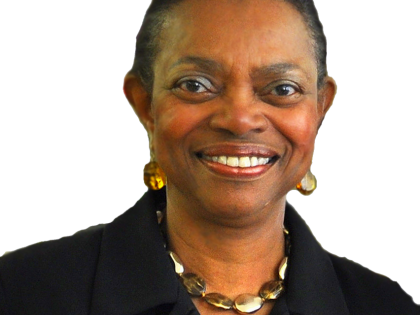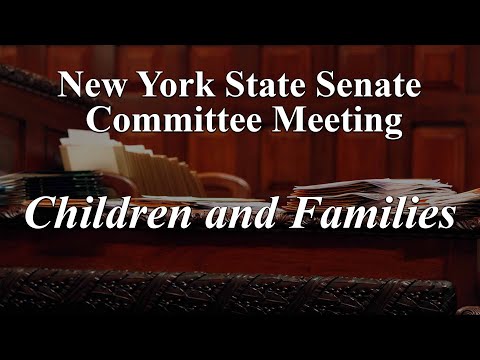
Governor Cuomo and Legislative Leaders Announce Agreement on Legislation to Protect People with Special Needs and Disabilities
Velmanette Montgomery
June 18, 2012
-
ISSUE:
- Health
- Men's Health
The Governor and legislative leaders reached agreement on legislation that will establish the strongest standards and practices in the nation for protecting people with special needs and disabilities.
The legislation creates a new Justice Center for the Protection of People with Special Needs, an initiative that will transform how the state protects over one million New Yorkers in State operated, certified or licensed facilities and programs.
The Justice Center will have a Special Prosecutor and Inspector General for the Protection of People with Special Needs who will investigate reports of abuse and neglect and prosecute allegations that rise to the level of criminal offenses. It will also include a 24/7 hotline run by trained professionals, a comprehensive statewide database that will track all reports of abuse and neglect and a statewide register of workers who have committed serious acts of abuse who will be prohibited from ever working with people with disabilities or special needs. The information obtained by the Justice Center will also provide the means to analyze abuse pattern and trends in order to prevent future abuse and provide a basis for the training and supports that program managers and direct care workers need to meet their critical responsibilities.
Last year, there were more than 10,000 allegations of abuse and neglect against New Yorkers with special needs and disabilities in state operated, certified or licensed facilities and programs. However, the State has never had a consistent and comprehensive standard for tracking and investigating complaints or punishing guilty workers.
The Justice Center for the Protection of People with Special Needs will have primary responsibility for tracking, investigating and pursuing serious abuse and neglect complaints for facilities and provider agencies that are operated, certified, or licensed by the following six agencies: The Department of Health (DOH), the Office of Mental Health (OMH), the Office for People With Developmental Disabilities (OPWDD), the Office of Children and Family Services (OCFS), the Office of Alcoholism and Substance Abuse Services (OASAS), and the State Education Department (SED). The Justice Center will also absorb all functions and responsibilities of the Commission on Quality of Care and Advocacy for Persons with Disabilities, with the exception of the Federal Protection and Advocacy and Client Assistance Programs which will be designated to a qualified non-profit.
Other components and responsibilities of the Justice Center include the following:
•An Executive Director, Special Prosecutor and Inspector General, and a substantial staff of trained investigators, lawyers and administrators. The Justice Center's law enforcement branch will have concurrent authority with district attorneys to prosecute abuse and neglect crimes committed against such persons.
•Creation of a statewide 24/7 hotline staffed by trained professionals to ensure that allegations of abuse are promptly reported to law enforcement and fully and effectively investigated.
•Development of a register of workers who have committed serious or repeated acts of abuse who will be prohibited from ever being hired again in any position where they would work with people with disabilities or special needs.
•Representing the state at all public employee disciplinary cases or those where the state is seeking termination of employment as the penalty.
•Development of common standards for investigations and requirements to be used to train investigators.
•Development of a code of conduct containing the basic ethical standards to which all individuals working with people with special needs and disabilities would be required to subscribe and would be held accountable.
•Consolidation of background check procedures, including reviewing and evaluating the criminal history for any person applying to be an employee, volunteer or consultant at any facility or provider agency operated, licensed or certified by OMH, OPWDD, and OCFS in a position where a background check is required.
•Providing an annual report to the Governor and the Legislature concerning its work during the preceding year which will include data on central register reports, results of investigations, types of corrective actions taken, results of its review of patterns and trends relating to abuse and reporting of abuse, suggested corrective actions and training efforts.
The bill will also provide for re-designation of an independent agency to conduct protection and advocacy and client assistance functions, in conformance with federal provisions governing oversight of the state’s system of care for persons with disabilities. The independent agency will provide information, references and technical assistance to address the needs of individuals with disabilities; pursue administrative and legal remedies as necessary to protect and advocate for the rights of individuals with disabilities; investigate incidents of abuse and neglect reported to the independent agency; and establish a grievance procedure to ensure that individuals with disabilities have full access to services of the agency.
An Advisory Council of at least 15 members will be created to provide guidance to the Justice Center in the development of policies, programs and regulations. Members will include persons with experience in the care and treatment of, or advocacy on behalf of, individuals with disabilities, as well as individuals or family members of individuals who have participated in programs or received services from provider agencies under the jurisdiction of the Justice Center.
The new law will also replace confusing and inconsistent definitions of abuse and neglect in various laws and regulations with a single consistent standard applicable to human services systems.
Under the legislation, a new level of transparency will be created for non-state operated facilities and programs licensed or certified by the State to serve people with disabilities and special needs. These entities, working with the Justice Center, will need to follow transparency guidelines based on FOIL for information requests regarding abuse or neglect of the people they serve.
The new law also will enhance criminal penalties for endangering the welfare of people with disabilities and special needs and strengthen a prosecutor's ability to prove that any of these individuals in a facility operated, licensed or certified by the State were the victims of sexual abuse. The law creates a new misdemeanor that will be easier to prove and elevates an existing crime of endangering the welfare of an incompetent or physically disabled person to a class E felony. In addition, the legislation provides that an individual in a residential facility under the jurisdiction of the Office for People With Developmental Disabilities, the Office of Mental Health and the Office of Alcoholism and Substance Abuse Services cannot consent to sex with an employee, thereby removing the prosecutor's obligation to prove that any sexual activity was nonconsensual.
New Yorkers can learn more about the Justice Center at www.Justice4SpecialNeeds.com
The Justice Center legislation was developed, in part, from recommendations outlined in The Measure of a Society: Protection of Vulnerable Persons in Residential Facilities Against Abuse and Neglect, a special report prepared by Mr. Clarence Sundram, the Governor's Special Advisor on Vulnerable Persons. A copy of this report is available at: http://www.governor.ny.gov/assets/documents/justice4specialneeds.pdf
###
Share this Article or Press Release
Newsroom
Go to NewsroomLawmakers Discuss LI Housing Crisis
January 22, 2020
Senate Standing Committee on Children and Families - 01/21/20
January 21, 2020
